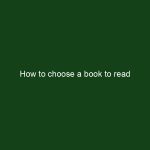Quite often true memories are mixed up with false memories. Quite often this happens when we read too slow. For today’s article, you may want to read here, here, here, here, and here. This article is inteded to be an overview: each of the subjects was already discussed in some other form on this blog. …
KeyToStudy Offers:
Memory, Speedreading, and Analysis
KeyToStudy Overview:
Memory, Speedreading, and Analysis
ProlificFocus Overview:
Productivity, Motivation, and Projects
ProlificFocus Offers:
Productivity, Motivation, and Projects
Superlearning for data scientists and AI programmers
Occasionally I write posts with specific tips for programmers of different kinds. Nowadays data scientists and AI programmers are in high demand. New areas like deep neural networks, chatbots, and mixed reality pose a new level of challenges. How will you treat these challenges as superlearners is up to you. This post focuses on working …
Continue reading “Superlearning for data scientists and AI programmers”
Using reading diary
Reading diary is a tool we typically plan to use but end up not using. I confess I never really used a reading diary. I do use a number of alternative approaches. In this article, I will describe first what the reading diary theoretically should be, and then what can be used instead. Basic reading …
Massive memory structures
I am occasionally asked how can someone remember 1 mil visualizations. Now 1 mil visualizations is a lot. For comparison, The King James Authorized Bible has 783,137 words. It is enough to know ~5000 words and 5000 phrases of a foreign language to be fluent, e.g. about 100,000 visualizations should suffice per language. Practically, not …
Reading contributes to well being and fights stress
Usually, we consider reading as a way to acquire other knowledge or skills: for a career, hobby or self-help. Arguably, reading has its own intrinsic value. When we read for fun or as a sport, it does something to our soul. It also has positive physiological and psychological effects. In this post, we focus on …
Continue reading “Reading contributes to well being and fights stress”
How to choose a book to read
Suppose we generated enough time each day to read something meaningful. This is in no way a small achievement, and if you can read every day you are probably one step ahead of 90% of your peers. Now, what do we read to make the most of this time? The answer is probably quite complex… …
Iterative reading of complex documents
Suppose we are doing a research project, and find a patent or a complex article. The document contains text, tables, graphs, names, numbers, formulas… Where do we even start reading? How do we know we understand what needs to be understood? Occasionally it makes sense to read a document more than once or twice, but …
Is it possible to read 10,000 wpm?
Is it possible to read 10,000wpm? Not sure… Depends on what we define as reading… There is a reaction speed limit of eye and brain which can be measured, defining the shortest saccade we can handle. Then there is a visual span, defining width and height of this saccade, and there is some sort of …
How to remember a dense book 1000 pages long?
How do we remember a dense book 1000 pages long? This is not a trivial question and it is asked quite often. Obviously, we need a good strategy. As always, everyone can make his own strategy. Quite often I change my strategy based on the content. Let us discuss one possible strategy, and you can …
Continue reading “How to remember a dense book 1000 pages long?”
Dealing with emotional texts
Reading is a sort of conversation, and like any conversation, it can be stressful. If you disagree with the author and his arguments, will you be able to consider them openly? If reading the text strikes some old wound in your soul, will you focus on the text or your own pain? If you are …











